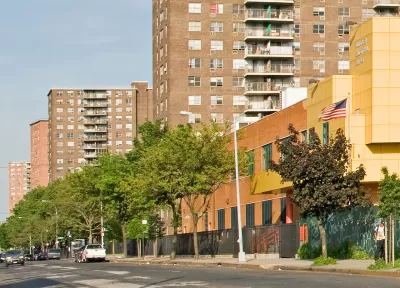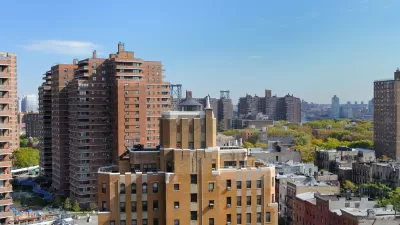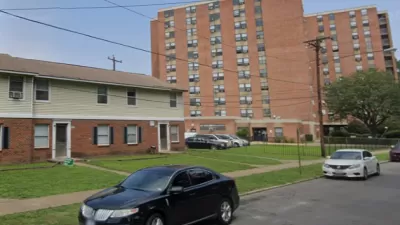Former HUD counsel and current Philadelphia mayoral contender Nelson Diaz laid the groundwork for "entrepreneurial" approaches to public housing. Whether the resulting projects were effective is up for debate.

Jared Brey writes about Diaz's influential opinion, which created new options for public housing development and financing. From the article: "Nothing in the Housing Act of 1937, Diaz wrote, prohibited public housing projects from being owned by private developers, so long as the public units themselves were in compliance with the rest of the Act's rules and regulations. But in effect, the opinion helped inaugurate a new model for affordable-housing development that mixed public and private funding sources with federal low-income housing tax credits."
Following the manifest failures of earlier projects, "The legal opinion allowed public housing authorities to demolish high-rise projects and work with private developers to replace them with a mix of low-income and market-rate units. Residents who didn't return to the lower-density developments would receive rental subsidies through the Section 8 voucher program that could be used on the private housing market."
The Diaz opinion was well-received among advocates of private financing and mixed-income development. However, Brey writes, "Others are less sure how well it's worked. In Atlanta, the public housing authority has completely eliminated traditional housing projects and replaced former high-rises with rental vouchers and mixed-income neighborhoods. But poverty and racial segregation have not been eliminated, or even seriously diminished, as a result."
FULL STORY: At HUD, Diaz opinion marked shift in public housing development

Alabama: Trump Terminates Settlements for Black Communities Harmed By Raw Sewage
Trump deemed the landmark civil rights agreement “illegal DEI and environmental justice policy.”

Planetizen Federal Action Tracker
A weekly monitor of how Trump’s orders and actions are impacting planners and planning in America.

Why Should We Subsidize Public Transportation?
Many public transit agencies face financial stress due to rising costs, declining fare revenue, and declining subsidies. Transit advocates must provide a strong business case for increasing public transit funding.

Understanding Road Diets
An explainer from Momentum highlights the advantages of reducing vehicle lanes in favor of more bike, transit, and pedestrian infrastructure.

New California Law Regulates Warehouse Pollution
A new law tightens building and emissions regulations for large distribution warehouses to mitigate air pollution and traffic in surrounding communities.

Phoenix Announces Opening Date for Light Rail Extension
The South Central extension will connect South Phoenix to downtown and other major hubs starting on June 7.
Urban Design for Planners 1: Software Tools
This six-course series explores essential urban design concepts using open source software and equips planners with the tools they need to participate fully in the urban design process.
Planning for Universal Design
Learn the tools for implementing Universal Design in planning regulations.
Caltrans
Smith Gee Studio
Institute for Housing and Urban Development Studies (IHS)
City of Grandview
Harvard GSD Executive Education
Toledo-Lucas County Plan Commissions
Salt Lake City
NYU Wagner Graduate School of Public Service





























